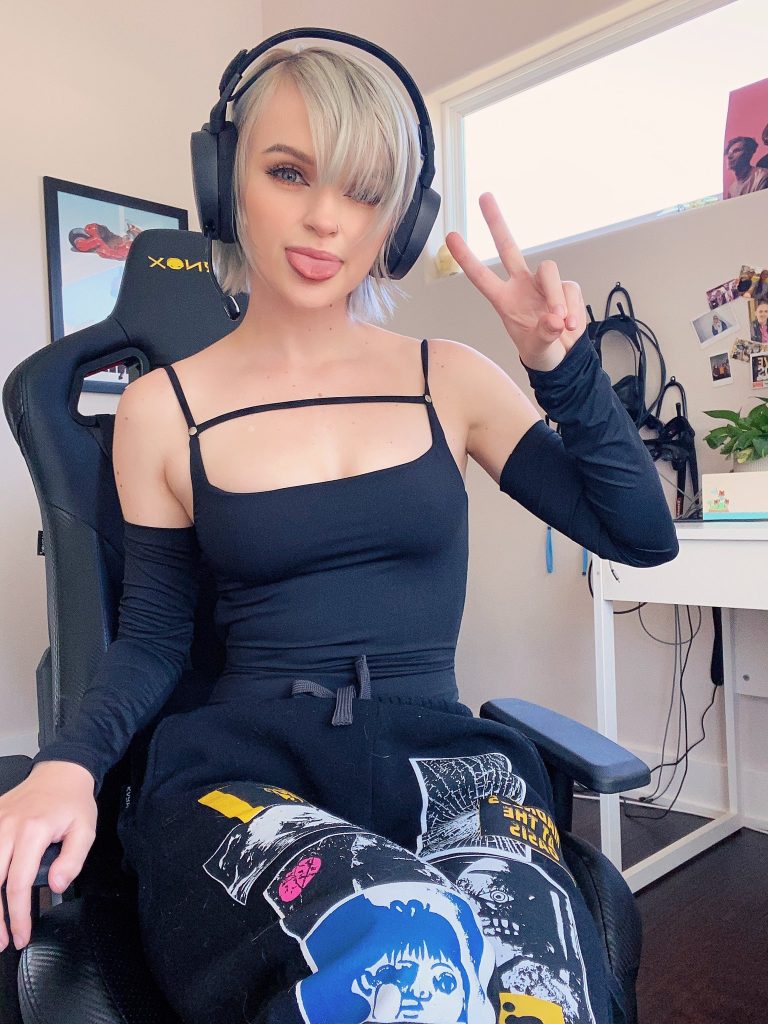Has the internet blurred the lines between performer and persona, fan and fanatic? The explosion of online platforms like OnlyFans and Twitch has fostered a new era of content creation, one where intimacy is commodified and parasocial relationships thrive. This digital landscape offers unprecedented opportunities for creators to connect with their audience, but it also presents a complex array of challenges, particularly when it comes to navigating the often-murky waters of online fandom.
The case of PeachJars, a cosplayer and streamer who has garnered a substantial following across various platforms, illuminates this dynamic. With over 100,000 subscribers on Reddit alone, PeachJars has cultivated a dedicated community. However, the nature of her content, which often leans into sexually suggestive imagery, raises questions about the ethical implications of online content creation and the potential for exploitation within these digital spaces. This exploration isn't about condemnation; rather, it's an attempt to understand the evolving relationship between creators and their audiences in the 21st century.
| Real Name | Information not publicly available |
| Online Alias | PeachJars |
| Occupation | Cosplayer, Streamer, VRChat Performer |
| Known for | Cosplay, ASMR, suggestive content on platforms like OnlyFans |
| Online Presence | Reddit (r/peachjars), Twitch, OnlyFans, etc. |
| Reference | r/peachjars (Reddit) |
The allure of platforms like OnlyFans lies in their promise of exclusivity and connection. Creators can monetize their content directly, bypassing traditional gatekeepers like media companies and agencies. Fans, in turn, are granted access to content they perceive as more personal and authentic, fostering a sense of intimacy that can quickly blur the lines of appropriate interaction. The provided snippets of information, referencing "ass pictures," "leaked nude videos," and "porn videos," highlight the sexually charged nature of some of PeachJars' content and the subsequent demand for it within certain online communities.
The existence of subreddits dedicated to PeachJars, boasting over 100,000 subscribers, demonstrates the power of online communities to coalesce around a particular figure. While these spaces can be positive hubs for fan interaction, they can also become breeding grounds for obsessive behavior and the dissemination of illicit content. The mention of "leaked" content raises serious concerns about consent and privacy. The unauthorized sharing of private materials is a violation and underscores the darker side of online fandom.
The digital age has democratized content creation, enabling individuals like PeachJars to build their own brands and connect with audiences directly. However, this democratization comes at a cost. The lines between public and private are increasingly blurred, and creators are often subjected to intense scrutiny and unwanted attention. The sheer volume of references to PeachJars' explicit content across various platforms from Reddit to dedicated pornographic websites illustrates the potential for overexposure and exploitation in the online world.
The reference to Livestreamfail, a subreddit with millions of subscribers, offers another layer of complexity. This community, dedicated to documenting livestreaming mishaps and controversies, highlights the performative nature of online content creation. Every moment, whether intentional or accidental, becomes fodder for public consumption and commentary. This constant surveillance can be both exhilarating and exhausting for creators, who are perpetually under the watchful eye of their audience.
The mention of "GTA6," a highly anticipated video game, alongside discussions of PeachJars, underscores the fragmented nature of online attention. These seemingly disparate topics coexist within the vast digital ecosystem, highlighting the rapid shifts in focus that characterize online communities. One moment the focus is on a cosplayer's explicit content, the next it's on the latest gaming news. This constant churn of information contributes to a culture of fleeting engagement and can make it difficult for creators to maintain a consistent audience and build meaningful connections.
The rise of platforms like OnlyFans has undoubtedly revolutionized the creator economy. However, it also presents a unique set of challenges related to privacy, consent, and the potential for exploitation. The case of PeachJars offers a glimpse into the complexities of navigating online fame in the 21st century. It's a conversation that needs to continue, not to condemn or condone, but to understand the evolving landscape of online content creation and its impact on both creators and consumers.
Ultimately, the responsibility for navigating this digital landscape falls on both creators and consumers. Creators must be mindful of the potential consequences of sharing intimate content online, while consumers must respect the boundaries of creators and refrain from engaging in harmful behaviors like leaking private materials. The ongoing dialogue about online ethics, privacy, and consent is crucial to fostering a healthier and more sustainable digital environment for everyone.


